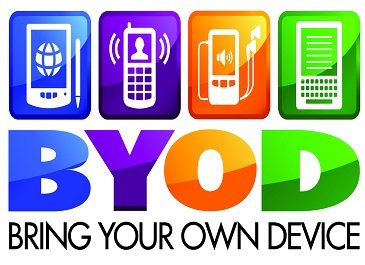Research support 'BYOD' approach in Clinical Trials
June 20, 2016 | Monday | News | By BioSpectrum Bureau
Research support 'BYOD' approach in Clinical Trials
The research highlights how commonly-cited concerns around the use of patients' own devices are not as much of a deterrent to adoption as is often thought.
ICON has announced research showing many pharmaceutical and clinical research organisations (CROs) support the use of a 'Bring Your Own Device' (BYOD) approach in clinical studies, enabling patients to use their own mobile devices to collect patient-reported outcomes (PRO) data. The research highlights how commonly-cited concerns around the use of patients' own devices are not as much of a deterrent to adoption as is often thought.
There are two main areas of concern in using a BYOD approach for PRO data collection in clinical studies. The first relates to equivalence and how different device sizes and operating systems might affect the measurement properties of a PRO instrument. The second relates to the technical and practical aspects of using a patient's own device, including data capacity, upgrades to operating systems and a change of device mid-study, which could negatively impact PRO data collection.
ICON's research, completed in association with Medidata and mProve Health, measured attitudes towards these perceived concerns and provides industry with further information to devise future strategies for BYOD adoption. The survey measured attitudes from 79 respondents from biopharma, CROs, ePRO providers, patient advocates and research institutions.
The survey results found that biopharma and CRO professionals appear to be significantly less deterred by challenges of equivalence and the practical and technical challenges associated with BYOD in clinical studies. Survey highlights include:
• Only 44% of respondents thought that equivalence should be demonstrated on all possible devices used in a BYOD study.
• The majority of respondents agreed that demonstration of equivalence on a single device specification was acceptable as long devices with smaller screen sizes or screen resolutions could be prevented. Only 30% of respondents disagreed with this approach.
• Over 75% responded that they were "not at all concerned" or only "a little concerned" about issues such as a PRO app being deleted, inadequate storage space for PRO data, or the trial participant becoming distracted by other apps on their device during PRO completion.
• Over half (53%) were not concerned that people may be able to turn off notifications, such as diary reminders, and 74% were not worried about trial participants changing their phones mid-study.
"As a CRO that is at the forefront of innovating the clinical trial process, we wanted to research industry perceptions towards BYOD, an approach that has the potential to greatly enhance patient engagement and compliance," commented Mr Willie Muehlhausen, ICON's Vice President eCOA and Head of Innovation. "We are encouraged by the research findings which show support from biopharma and CROs for the adoption of BYOD models. We will continue to investigate this important area and work with industry partners and regulatory authorities to provide evidence and guidance to make BYOD a fully endorsed approach."









